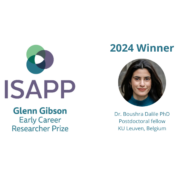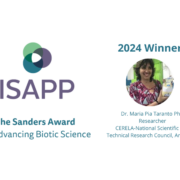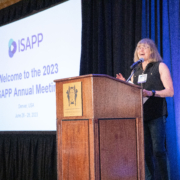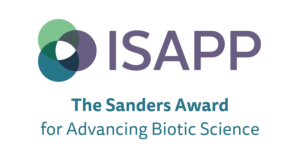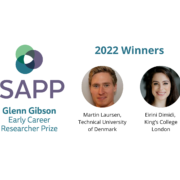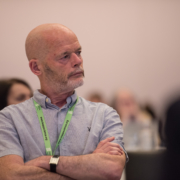Microbiota-Gut-Brain Axis Researcher in Belgium Receives ISAPP’s 2024 Glenn Gibson Early Career Researcher Award
The ISAPP selection committee for the Glenn Gibson Early Career Researcher Award is pleased to announce that Dr. Boushra Dalile PhD, a postdoctoral fellow at KU Leuven (Belgium), is the recipient of this year’s award.
Dr. Dalile is a researcher who moved from studying psychology and cognitive neuroscience into biomedical sciences, completing her PhD in 2021. She now focuses on the gut-brain axis – specifically, the mechanistic role of colonic short-chain fatty acids (SCFAs) as mediators of prebiotic effects on stress-related mental disorders. In one of her group’s most recent studies, she used colon-delivery capsules to approximate the metabolic effects of prebiotic administration, and found that direct delivery of SCFAs successfully reduced physiological stress response (as measured by cortisol) in humans. She is interested in continuing to explore the potential of butyrate for modulating fear as well as anxiety-related learning and memory processes.
A multilingual researcher who lived in Germany and Sweden before coming to KU Leuven, Dr. Dalile currently has a postdoc project supported by The Research Foundation – Flanders, titled “INTERFEAR – Investigating the endogenous metabolite butyrate as an epigenetic modulator of fear memory”.
The 2024 award committee, composed of ISAPP board members and affiliates, identified Dr. Dalile as making important contributions in the biotics field early in her scientific career. The award is given annually to a researcher who is no more than five years past their terminal degree, in a field of study related to probiotics, prebiotics, synbiotics, postbiotics or fermented foods. She will receive a cash prize and a speaking slot at the ISAPP annual meeting in July, 2024.

